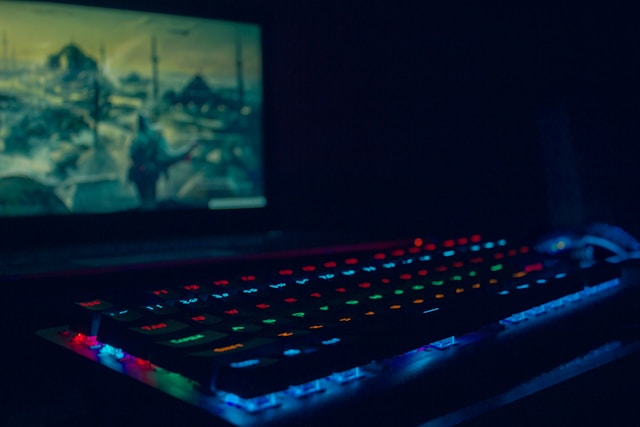Building your gaming PC can be an exciting adventure, but also a challenging one. After all, the parts you choose are key to maximizing your gameplay performance. Whether you’re an avid gamer seeking the ultimate experience or a beginner just getting started, understanding the significance of selecting the right components can make all the difference. This blog post will guide you through the essentials of assembling a gaming powerhouse, helping you make informed decisions that fit your gameplay needs and budget.
Why Choosing the Right Parts Matters
When it comes to gaming, not all PCs are created equal. The choice of components directly influences your machine’s performance, speed, and ability to handle demanding games. An optimized gaming PC can deliver smooth graphics, quick load times, and an overall immersive experience. On the other hand, a poorly configured system can lead to frustration with lagging graphics and slow responses. In this post, we’ll cover everything you need to know about building a gaming PC that offers maximum performance.
Understanding the Key Components
Before we get into the specifics of each part, it’s important to understand the primary components of a gaming PC. These include the CPU, GPU, RAM, storage solutions, and power supply unit (PSU). Each plays a crucial role in your system’s overall performance and stability.
The central processing unit (CPU) is often considered the “brain” of the computer, handling instructions and processing data. For gaming, a powerful CPU can help handle complex calculations and ensure seamless gameplay.
The graphics processing unit (GPU) is perhaps the most critical component for gaming. It’s responsible for rendering images and animations, making it essential for delivering high-quality visuals.
Random access memory (RAM) provides space for your computer to read and write data, influencing your system’s ability to multitask and run demanding programs.
Storage solutions, such as solid-state drives (SSDs) and hard disk drives (HDDs), determine how quickly your computer can access and store data.
Finally, the power supply unit (PSU) ensures that all components receive the necessary electrical power to function efficiently.
CPU Insight for Gamers
When selecting a CPU, consider the number of cores and threads, clock speed, and compatibility with other components. Modern gaming often benefits from multi-core processors that can handle several tasks simultaneously. High clock speeds also contribute to faster processing, reducing latency during gameplay. Popular choices among gamers include Intel’s Core i5 and i7 series, as well as AMD’s Ryzen 5 and 7 models.
GPU Selection for Stunning Graphics
The GPU is arguably the most critical component for any gaming PC. It determines the quality of graphics you’ll experience, from lifelike textures to smooth frame rates. When choosing a GPU, consider factors such as video memory, core count, and clock speed. NVIDIA’s GeForce RTX series and AMD’s Radeon RX series are known for their performance in handling high-end games. Keep in mind that a high-quality GPU often comes with a higher price tag, so balance your graphics needs with your budget.
RAM Matters for Multitasking
RAM is vital for running multiple applications and processes smoothly. For gaming, a minimum of 16GB is recommended to ensure that your system can handle current games and future updates. Consider investing in RAM with higher clock speeds for improved performance. Dual-channel configurations can also enhance your system’s ability to handle data-heavy tasks.
Storage Solutions for Fast Access
Choosing the right storage solution can significantly impact your gaming experience. Solid-state drives (SSDs) offer faster read and write speeds compared to traditional hard disk drives (HDDs). This means quicker loading times for games and reduced wait times during gameplay. Consider using an SSD for your operating system and frequently played games, while utilizing an HDD for additional storage.
The Role of the Power Supply Unit
The PSU is responsible for providing power to all components within your gaming PC. When selecting a PSU, consider the wattage required by your components. It’s essential to choose a reliable PSU with enough capacity to handle your system’s needs. Modular PSUs can offer flexibility by allowing you to connect only the cables you need, reducing clutter and improving airflow.
Assessing Your Gaming Needs
Understanding your specific gaming needs is crucial when selecting parts for your PC. Consider the types of games you plan to play, as well as any additional tasks you’ll perform, such as streaming or video editing. If you’re primarily focused on esports titles that require high frame rates, prioritize a powerful GPU and fast RAM. For those interested in open-world games with detailed graphics, a high-performance CPU and ample storage may be more critical.
Balancing Performance with Budget
Building a gaming PC requires finding the right balance between performance and budget. While it’s tempting to invest in the latest and greatest components, it’s essential to set a realistic budget and prioritize upgrades based on your needs. Consider which components will have the most significant impact on your gaming experience and allocate your budget accordingly.
Compatibility and Future-Proofing
Ensuring compatibility between components is critical to building a functional PC, especially within your gaming computer tower. Check compatibility between the CPU and motherboard socket types and ensure that the PSU has enough power for all components. Future-proofing your build can help extend its lifespan, so consider components that allow for upgrades, such as additional RAM slots or an expandable storage solution.
Making Informed Decisions
Research is key to making informed decisions when building a gaming PC. Consult online resources, product reviews, and user forums to gather insights into the best components for your needs. Building relationships within the gaming community can also provide valuable tips and recommendations. Don’t hesitate to ask for assistance from online communities or local experts if you encounter challenges.
Conclusion
Choosing the right parts for your gaming PC is crucial for maximizing performance and enhancing your gaming experience. By understanding the key components and their roles, assessing your gaming needs, and balancing performance with budget, you can build a gaming powerhouse tailored to your preferences. Remember, research is your greatest ally, so take the time to gather information and make informed decisions. With the right components, you’ll create a gaming setup that delivers hours of enjoyment and immersion, ensuring you stay at the top of your game.


